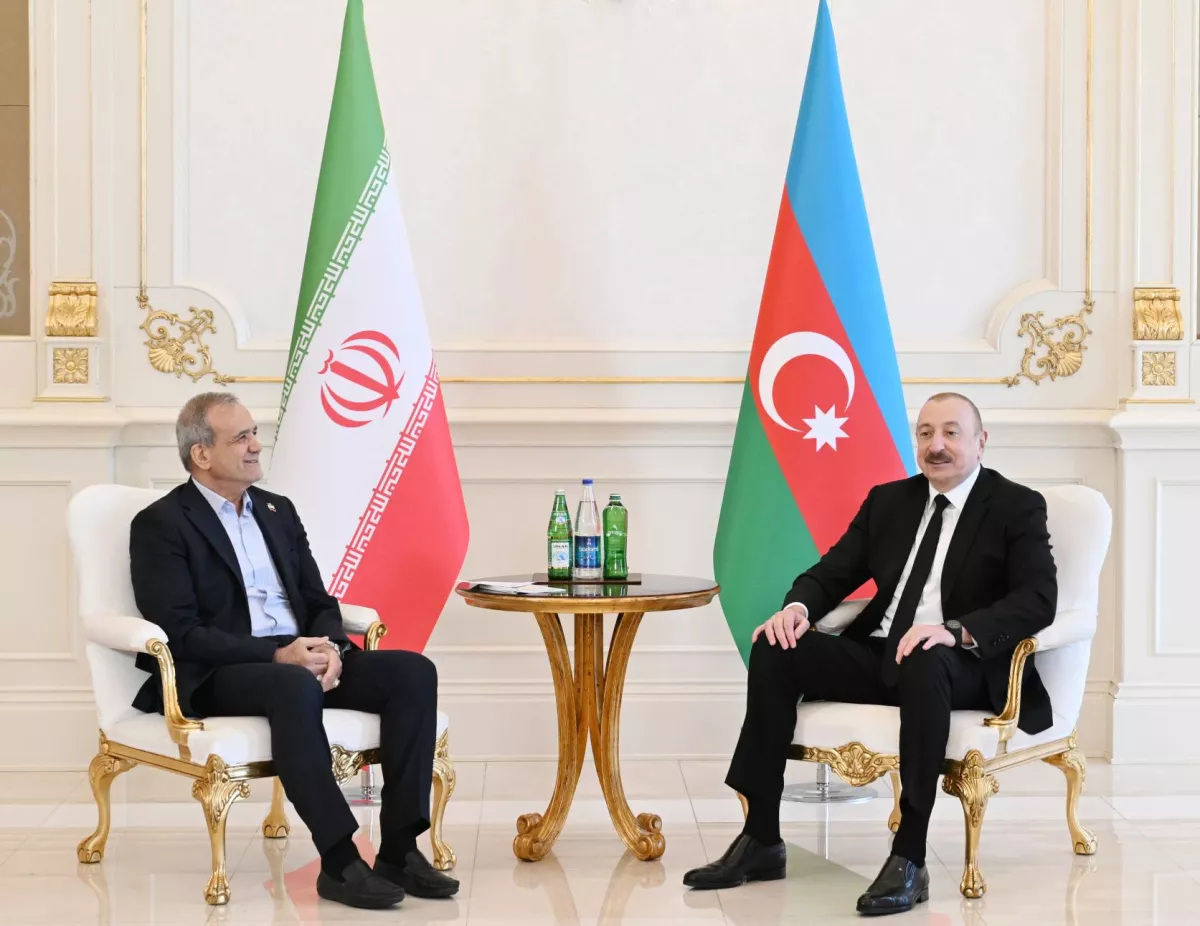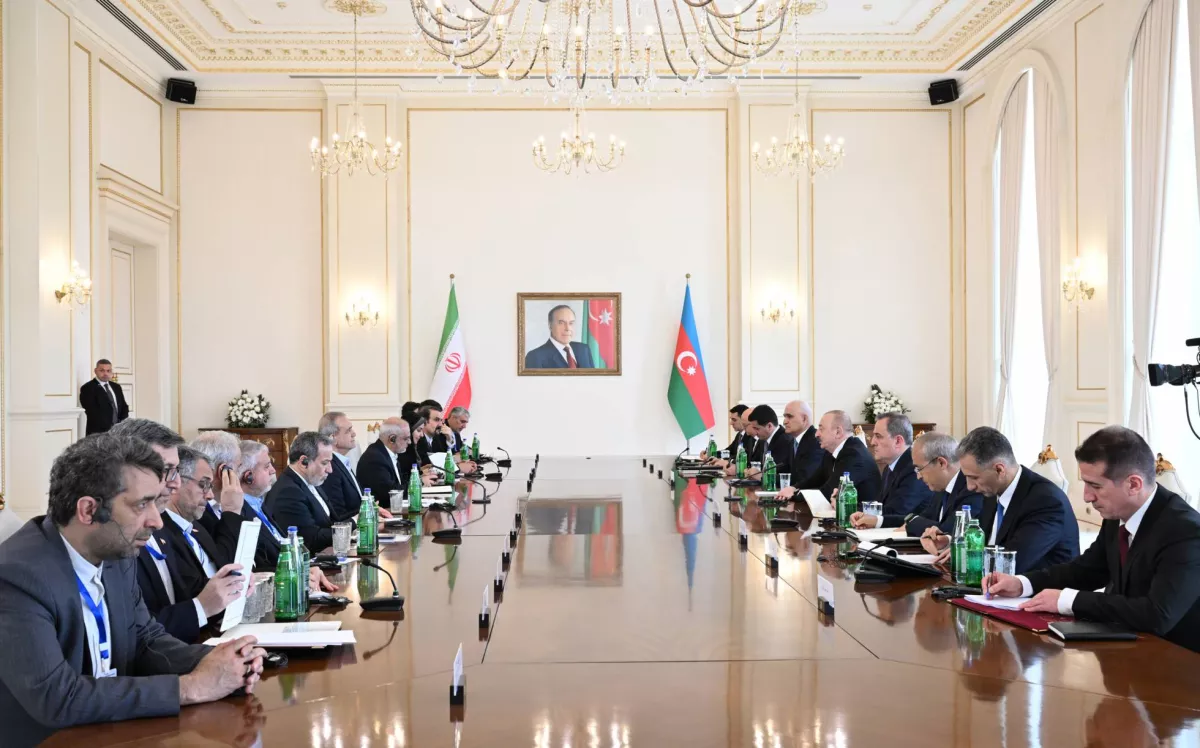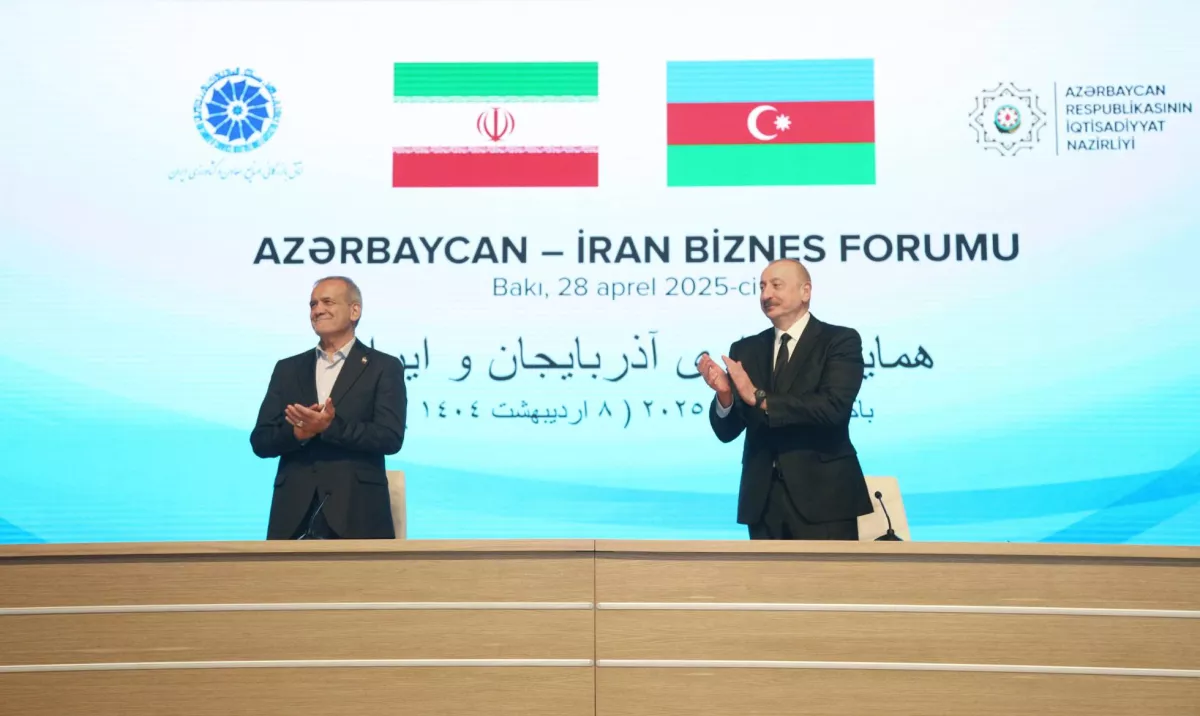A confident step forward Following Pezeshkian’s visit to Baku
On April 28, the President of the Islamic Republic of Iran, Masoud Pezeshkian, paid an official visit to Baku. Although the visit lasted only one day, it was eventful. The day began with a document exchange ceremony attended by Azerbaijani President Ilham Aliyev and Iranian President Masoud Pezeshkian, during which several agreements were signed between the two countries, including a joint presidential statement. Following that, President Aliyev and his guest held talks first in a limited format, and then in an expanded format, after which they made statements to the press.
The central theme of Ilham Aliyev’s remarks was the commitment to the principles of sovereignty, territorial integrity, and non-interference. “Today, as two independent states, we play an important role in our region. The resolution of regional issues by countries of the region is also the opinion and policy of both sides,” the President of Azerbaijan stated.

In a broader context, this reflects Azerbaijan’s allied relations with Türkiye and Russia, its strategic partnership with Georgia, and the absence of any obstacles to strengthening ties with Iran and elevating bilateral relations to the level of strategic partnership.
For his part, Pezeshkian emphasised the deep historical, ethnic, and cultural bonds between Iran and Azerbaijan. “We must act together in the fields of production, science, culture, economy, and politics, without allowing others to disrupt them. If they want to create discord between us, we will not allow that to happen. We have many common factors that bring us together, even family and kinship ties. This is an issue no one can disrupt,” he stated.
Both sides made it clear: any external attempts by third parties to instigate discord in the region will be rejected. This alignment of Baku and Tehran’s positions on regional security inspires strong confidence in the effectiveness of cooperation formats initiated by Azerbaijan—particularly the “3+3” platform. It is also worth noting the trilateral formats of Azerbaijan-Iran-Türkiye and Azerbaijan-Iran-Russia. One may express hope for the revival of regular meetings in these formats, as was the case with the presidential summits held in Baku in 2016 and in Tehran in 2017.
The very fact that all these cooperation formats were initiated by Baku is a testament to Azerbaijan’s goodwill towards Iran—a policy rooted in mutual respect for each nation’s choices, the peaceful coexistence of two different political systems, and non-interference in each other’s internal affairs.
A key item on the agenda of Pezeshkian’s visit to Baku was the North–South transport corridor. According to Ilham Aliyev, Azerbaijan has already completed all necessary infrastructure projects on its territory to support the corridor’s operation. Masoud Pezeshkian expressed clear interest in the initiative, adding: “We can cooperate in all areas. We can create a region, and establish a connection between countries that will be superior to the relations between European countries.”

And finally, the Azerbaijan–Iran Business Forum, held at the Heydar Aliyev Centre in Baku, marked an important milestone in the development of trade and economic relations between the two countries. Both sides expressed their intention to strengthen cooperation across key sectors—from energy to infrastructure projects and scientific knowledge exchange.
Particular emphasis was placed on infrastructure initiatives, especially the development of the aforementioned North–South transport corridor, as well as the construction of railways, highways, and power transmission lines. Iranian companies were invited to participate in the reconstruction of Azerbaijan’s liberated territories—a direction that offers wide-ranging opportunities for business.
President Aliyev specifically emphasised the importance of the “Araz Corridor” project, which will connect Azerbaijan’s mainland with Nakhchivan via Iranian territory. The corridor holds the potential to evolve into an international transport route linking Asia, Europe, the Persian Gulf, and the Mediterranean.
In his speech, Iranian President Masoud Pezeshkian highlighted the cultural and historical kinship between the two nations and expressed gratitude for the warm reception. He underlined the strategic importance of both countries as transport hubs between East and West, North and South. Pezeshkian called for expanding not only trade and investment but also scientific, educational, cultural, and sports exchanges—laying a strong foundation for peace and stability in the region.

In conclusion, President Pezeshkian quoted a verse from the classic Azerbaijani poet Shahriyar, selecting a stanza that touches upon the theme of the separation of southern and northern Azerbaijanis. While it is not appropriate to draw sweeping conclusions from this, it can be noted that Tehran is making efforts to build a trusting relationship with Baku. One could discuss the contradictory nature of Iranian policy at length, but as the saying goes, "you can’t take the words out of the song." Five or ten years ago, it would have been hard to imagine the President of Iran speaking in Azerbaijani in Baku. Yet now, this is a reality. This, among other things, also signifies that the Iranian leadership finds it necessary to align its policies with the sentiments in Baku, and, we dare say, even in Tabriz.
What particularly stood out was the fact that the Presidents of Azerbaijan and Iran addressed each other as "dear brother." This serves as a clear indicator of the overcoming of the crisis between the two countries and a foundation for the creation of lasting future relations. In the Azerbaijan-Iran relationship, beyond good neighborliness, shared history, and cultural ties, the factors of kinship and brotherhood play a significant role. It should be noted that the foundations of Azerbaijan-Iran relations were laid by the National Leader Heydar Aliyev and have been successfully strengthened by President Ilham Aliyev.
It is worth noting that, in the context of current geopolitical instability, the border with Azerbaijan is likely the safest for Iran among all its borders with the 12 countries it shares borders with. It is no coincidence that during Ilham Aliyev's visit to the Khudaferin Bridge on November 16, 2020, it was referred to as the "Bridge of Friendship."
All these facts provide grounds for hoping that Masoud Pezeshkian’s visit has become an important milestone in strengthening Azerbaijan-Iran relations.








